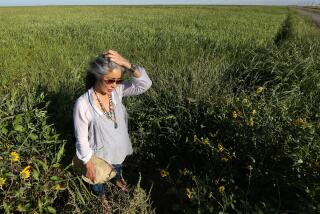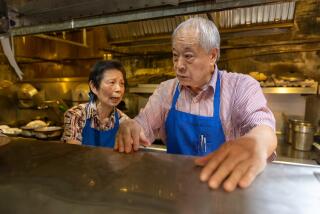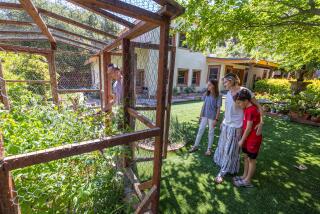A Black couple defied racism by renting to a Chinese family. Now comes $5 million in thanks
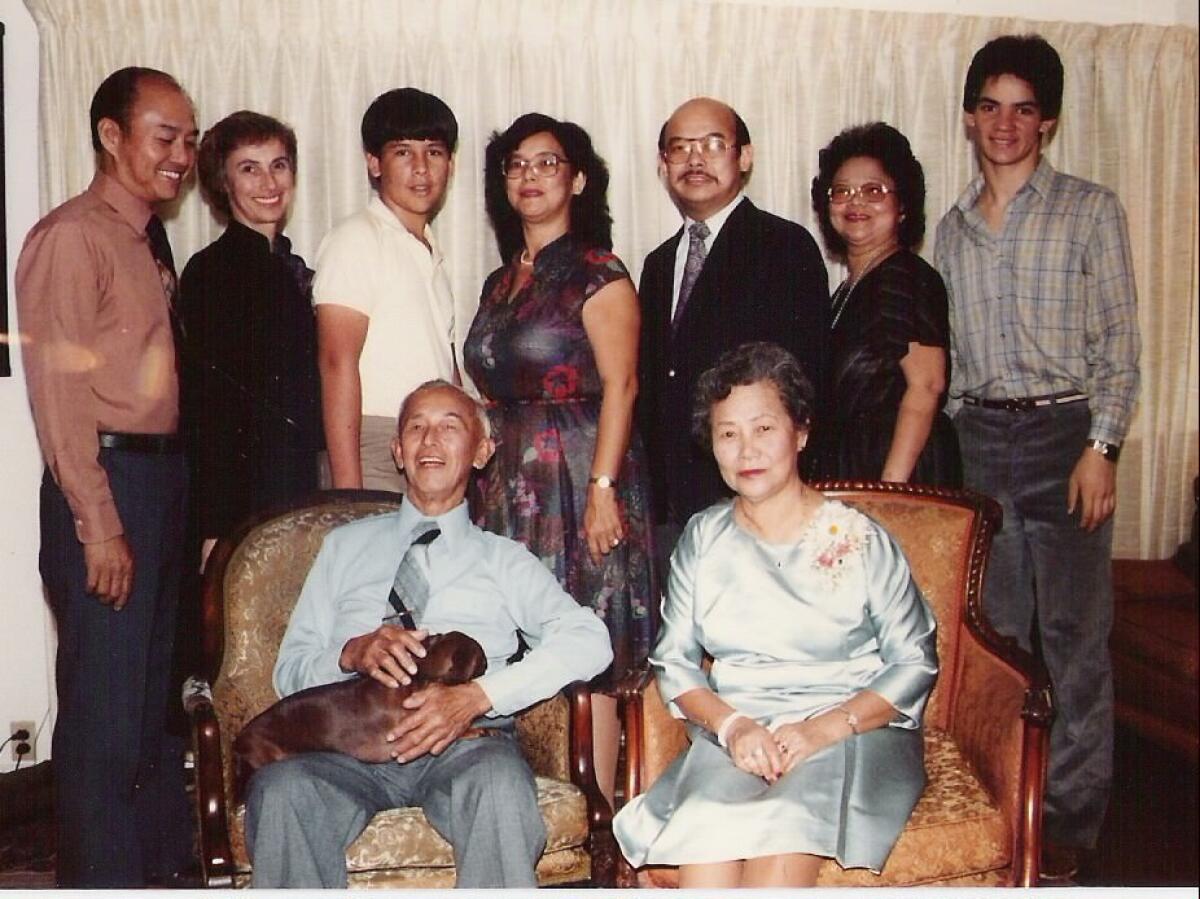
- Share via
Every morning, Lloyd Dong Sr. would take the ferry from San Diego to Coronado, where he worked as a gardener for wealthy homeowners. And every night, he would retreat back home across the bay, barred by racially restrictive housing practices in the early 1900s from renting or buying his own house in the town.
Gus and Emma Thompson — a Black couple who had managed to secure ownership of Coronado property before restrictions took hold — boldly rented a house they owned to the Dong family, whose Chinese heritage blocked them from living in the community. The intersection of these two families amid the embedded racism of the time would decades later become a story of gratitude, made possible by the very home that once belonged to the Thompsons.
Some 85 years since the Dongs moved to Coronado, Lloyd Sr.’s sons, Ron Dong and Lloyd Dong Jr., are donating $5 million from their portion of the sale of the house they eventually came to own to San Diego State University’s Black Resource Center.
The gift will expand scholarships for Black students and fund future renovations at the center, its director, Brandon Gamble, said.
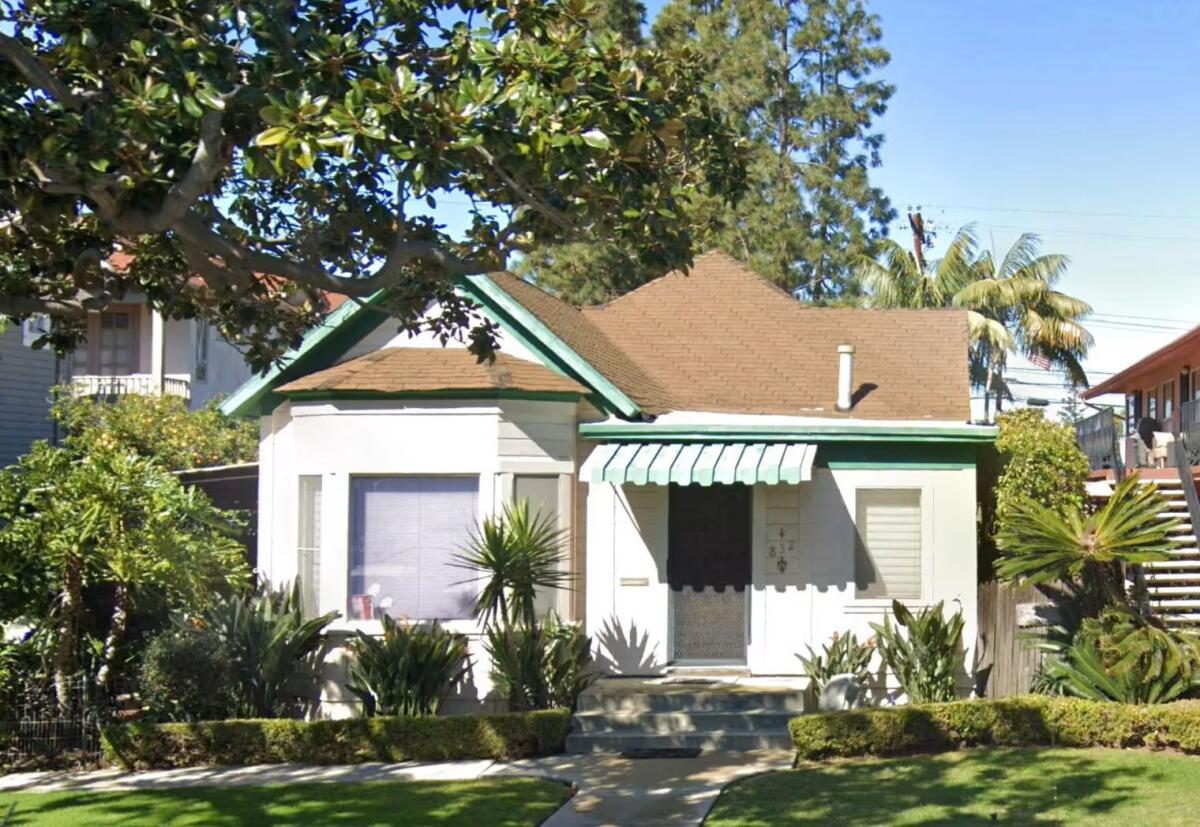
“I don’t know how to describe the feeling in my chest, but there’s a feeling that racism gives that folks are familiar with; you may not be able to describe it all the time,” Gamble said. “This is the complete opposite, and we don’t get to access it enough.”
Ron Dong, 86, the eldest son, said his father “tried and tried [to live in Coronado] and the only thing that came up was Gus Thompson willing to rent his house that he had available.... That was the big plus for our family, because it has made all the difference for us.”
###
Gus Thompson was born into slavery in Kentucky in 1859, two years before the Civil War broke out. He moved to Coronado in his 20s seeking work and a new life after hearing that industrialist tycoon Elisha Spurr Babcock was corralling money to start a new resort in California, according to Coronado historian Kevin Ashley. Hotel del Coronado opened in 1888 as the largest resort in the world at the time.
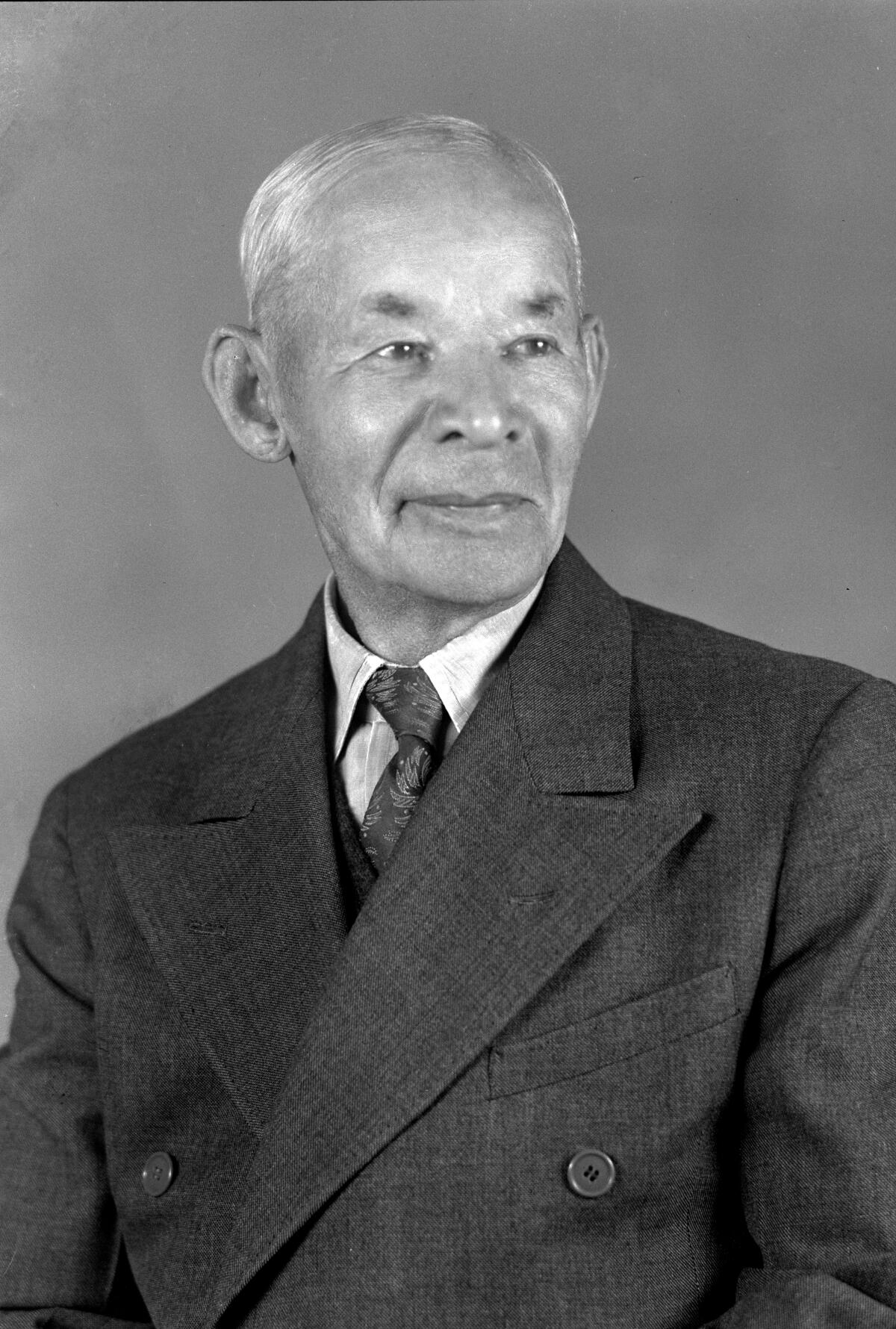
He became the Babcock family’s coachman and quickly gained respect in the Greater San Diego area, founding a Prince Hall Freemasonry lodge in San Diego for Black middle-class men to congregate and discuss civil rights. In 1893 Gus married Emma, who ran a coffee tent in Coronado’s Tent City, where locals and visitors would flock to eat, shop and stay, a more affordable alternative to the luxurious hotel.
Emma was also a leader of the Bethel African Methodist Episcopal Church, the first Black church in San Diego and a vocal advocate for the 1922 Dyer Anti-Lynching Bill, which would have classified lynching as a federal felony if not blocked by Southern Democrats in the Senate. It would take Congress 100 years to pass a federal anti-lynching bill, in 2022.
The Thompsons bought several properties in Coronado around 1900 before the National Assn. of Real Estate Boards officially adopted racially restrictive practices in the 1920s, making them one of the few Black families to own a home in Coronado.
Jobs for Black people were limited and mainly included work as maids or drivers, Ashley said. At the newly popular and lavish Hotel del Coronado, minstrel shows featured white performers in blackface.
As leaders of Greater San Diego’s Black community, the Thompsons used their standing to extend help to Asian Americans in Coronado, who were also subjected to racist practices of the times.
“It’s just something you do, because there was a lot of oppression so you help people that were under threat as well,” said the Thompsons’ great-grandson, Ballinger Gardner Kemp, 76, who lives in the Bay Area. “To me, the beautiful part is that it wasn’t considered that big of a thing.”
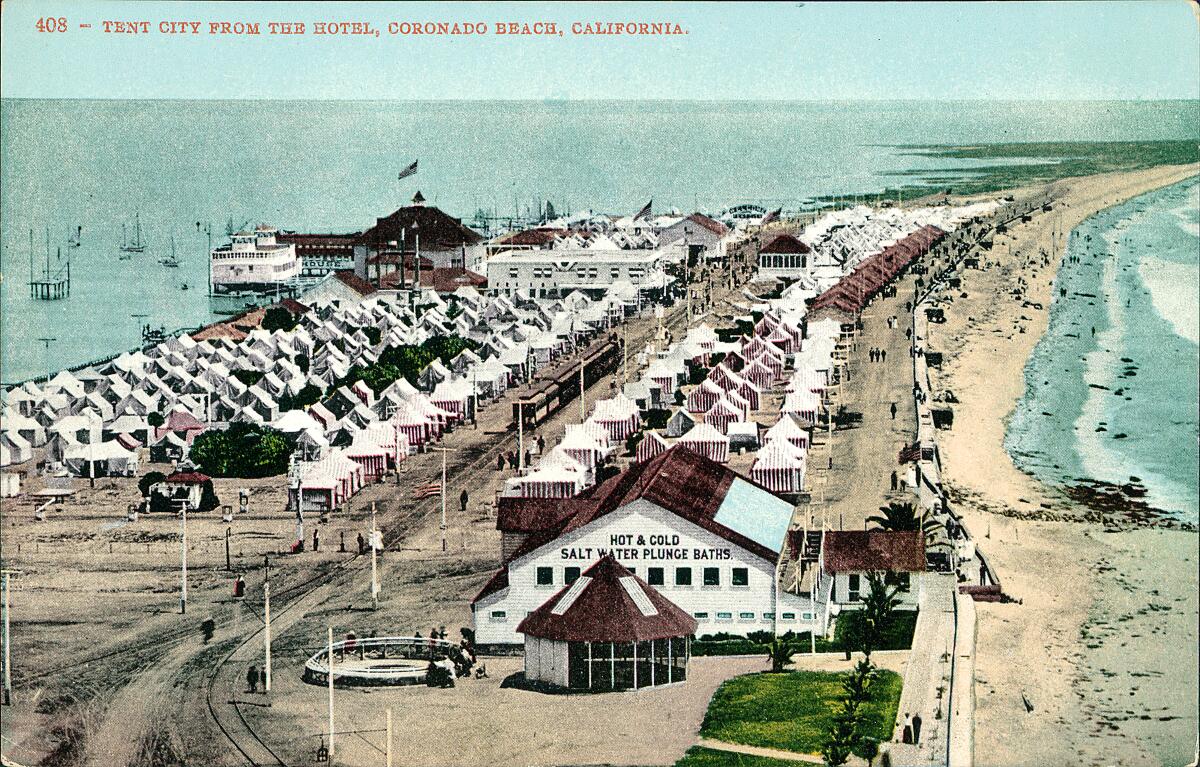
His great-grandparents rented their house on C Avenue to a Japanese family in the 1920s — and then to Lloyd Sr. and his wife in 1939 under a rent-to-own agreement. The couple also rented a room in another one of their properties, just blocks away, to Lloyd Sr.’s younger brother, George Dong, after he came back from serving in World War II.
“I think there was definitely a level of ally-ship going on,” Ashley said.
###
Lloyd Sr. was born of Chinese heritage in 1905 in Bakersfield, where most Asian Americans worked in agriculture. But as California tightened its Alien Land Laws barring Asian immigrants and eventually American-born children of Asian immigrants from owning or leasing land, life in Bakersfield became too difficult for Lloyd Sr., Ashley said.
He moved to San Diego, where he worked multiple jobs — at a Chinese department store and as a painter at an auto repair shop for more than a decade before finding work in Coronado as a gardener. Lloyd Sr. ferried back and forth every day for his gardening work until he came across the Thompsons and their generous offer in 1939 to rent their house so he could live closer to work.
Gus died in 1947, and eight years later, Emma sold two properties to Lloyd Sr. and one property to George Dong, making the Dongs one of the only — if not the only — Asian homeowners in Coronado, Ashley said.
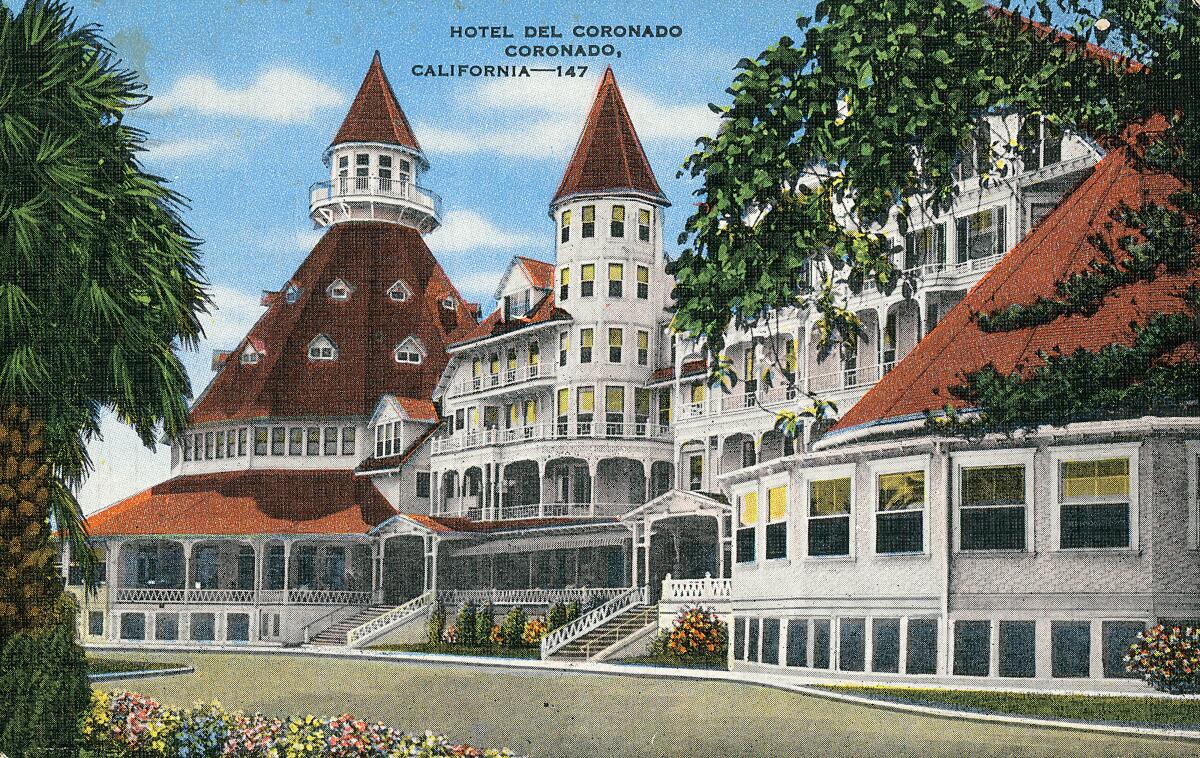
The property sold to George Dong was the Thompsons’ original home built in 1895, along F Avenue where George rented a room. The properties sold to Lloyd Sr. included the house they were renting, built around 1900, as well as a livery stable built in 1902. The second floor of the livery stable was used as a boarding house for Black people.
“African Americans who were in Coronado for work, maybe as a driver for a wealthy person staying at the hotel, would rent a room in the livery stable right next to the Dongs’ house,” Ashley said. “That was a very important place for many African Americans to have that livery stable as a place” to stay.
Lloyd Sr. turned the livery stable into an apartment building in 1957, which, in addition to the house, is estimated to be worth more than $7 million today, Ron Dong said.
Although the Dong children were too young to remember the Thompsons, they recalled a hodgepodge of memories growing up in Coronado, from water skiing with friends in San Diego Bay to facing discrimination because they were among the few Asian American kids in town.
Lloyd Jr., 81, said he remembered how his mother tried to keep him busy when she found out he was the only student not invited to a birthday party in second grade. Ron Dong recalled how he and the other nonwhite students would get together the night white youths gathered for cotillion because they never received invites. And before he went off to college, he remembered the day his high school girlfriend’s father came over to the house to convince Lloyd Sr. to end their biracial relationship.
“[My father] stood up for me,” Ron Dong said. “He told him that was our business, not theirs.”
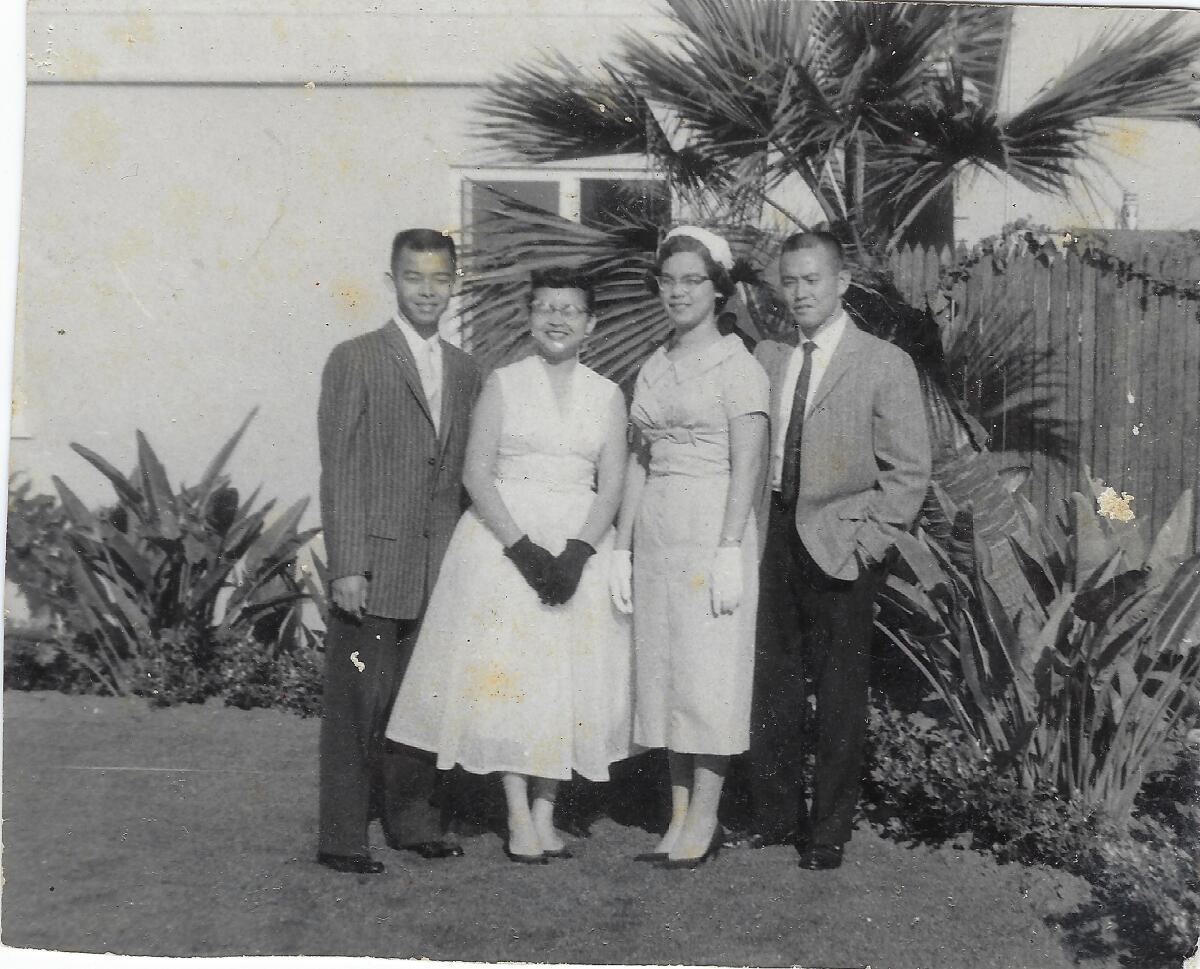
###
Ron Dong and his wife, Janice Dong, are both retired teachers in San Jose and have previously donated to the United Negro College Fund with several charitable remainder trusts at other universities. Lloyd Jr. is a retired tax preparer and auditor in Anaheim. Neither brothers have children.
When Ashley reached out to the Dongs in 2022 after discovering the Thompsons’ connection to their family, the Dong brothers knew they wanted to give their portion of the property sale back to the community.
“We have other assets and my nieces and nephews are established, so I just thought I’ll give it to someone who could benefit from it,” Lloyd Jr. said.
The Thompsons’ great-granddaughter, 65-year-old Lauren Few, praised the Dongs for wanting to return her great-grandparents’ generosity nearly a century later.
“We need more of that in the world today,” said Few, who lives in Colorado Springs.
Kemp, Lauren’s brother, comes from a family of teachers and is a retired lawyer who represented teachers for 35 years. He said the Dongs’ idea to put the money toward education was perfect.
“There’s no more important job than being a teacher, because you’re the only person outside of someone’s family that has a shot at really changing a life,” Kemp said.
More to Read
Sign up for Essential California
The most important California stories and recommendations in your inbox every morning.
You may occasionally receive promotional content from the Los Angeles Times.
